Barriers to universal health coverage in Republic of Moldova: a policy analysis of formal and informal out-of-pocket payments
- PMID: 26260324
- PMCID: PMC4531477
- DOI: 10.1186/s12913-015-0984-z
Barriers to universal health coverage in Republic of Moldova: a policy analysis of formal and informal out-of-pocket payments
Abstract
Background: Universal Health Coverage seeks to assure that everyone can obtain the health services they need without financial hardship. Countries which rely heavily on out-of-pocket (OOP) payments, including informal payments (IP), to finance total health expenditures are not likely to achieve universal coverage. The Republic of Moldova is committed to promoting universal coverage, reducing inequities, and expanding financial protection. To achieve these goals, the country must reduce the proportion of total health expenditures paid by households. This study documents the extent of OOP payments and IP in Moldova, analyses trends over time, and identifies factors which may be driving these payments.
Methods: The study includes analysis of household budget survey data and previous research and policy documents. The team also conducted a review of administrative law intended to control OOP payments and IPs. Focus groups, interviews, and a policy dialogue with key stakeholders were held to validate and discuss findings.
Results: OOP payments account for 45% of total health expenditures. Sixteen percent of outpatients and 30% of inpatients reporting that they made OOP payments when seeking care at a health facility in 2012, more than two-thirds of whom also reported paying for medicines at a pharmacy. Among those who paid anything, 36% of outpatients and 82% of inpatients reported paying informally, with the proportion increasing over time for inpatient care. Although many patients consider these payments to be gifts, around one-third of IPs appear to be forced, posing a threat to health care access. Patients perceive that payments are driven by the limited list of reimbursable medicines, a desire to receive better treatment, and fear or extortion. Providers suggested irrational prescribing and ordering of tests as drivers. Providers may believe that IPs are gifts and do not cause harm for patients and the health system in general.
Conclusions: Efforts to expand financial protection should focus on reducing household spending on medicines and hospital-based IPs. Reforms should consider ways to reduce medicine prices and promote rational use, strengthen administrative controls, and increase incentives for quality health care provision.
Figures
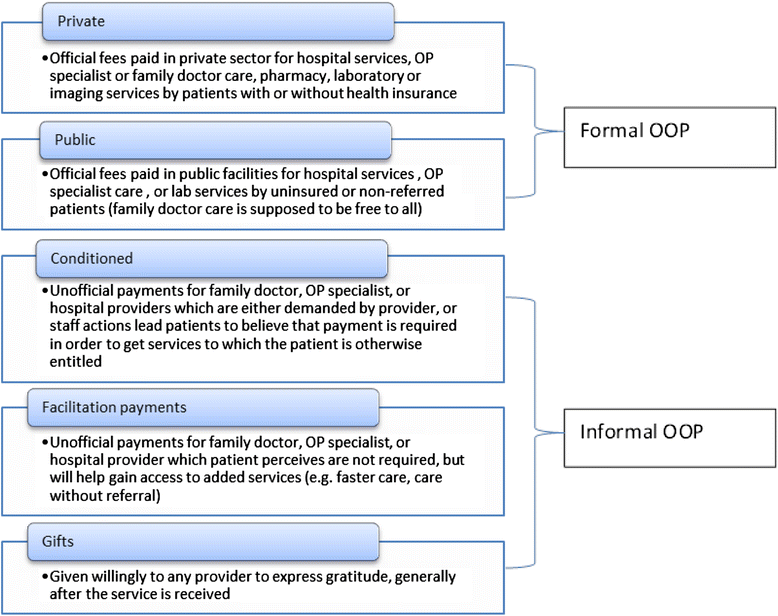
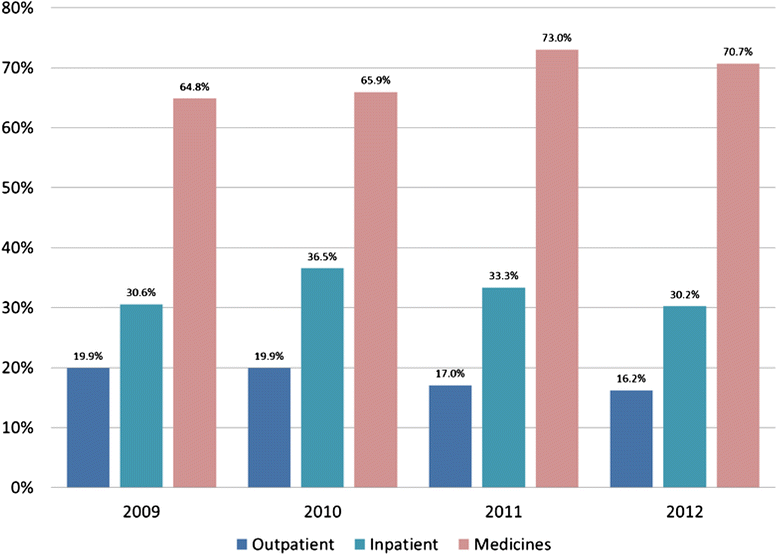
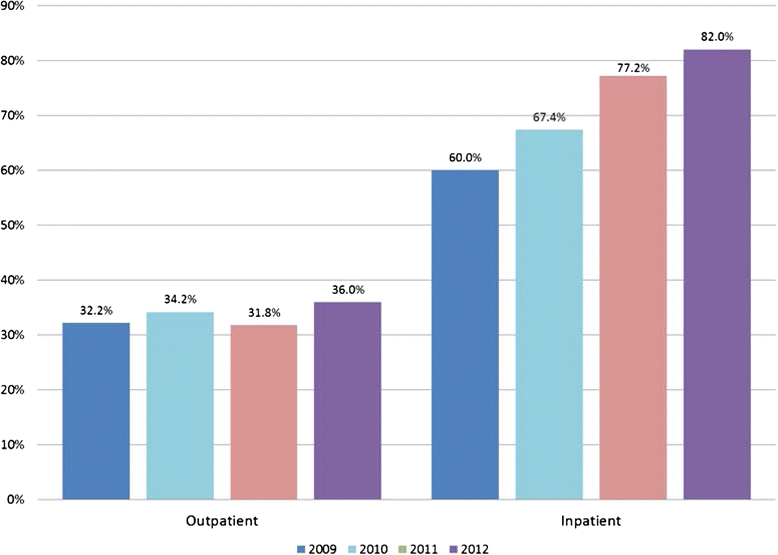
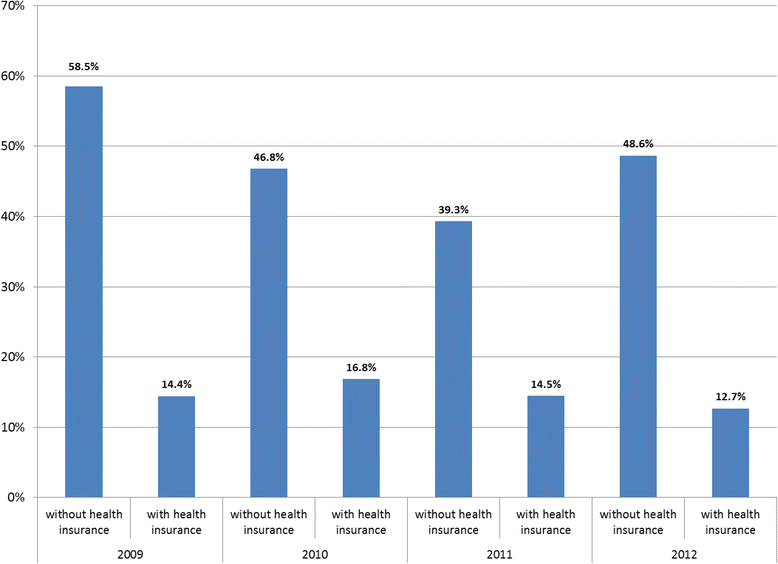
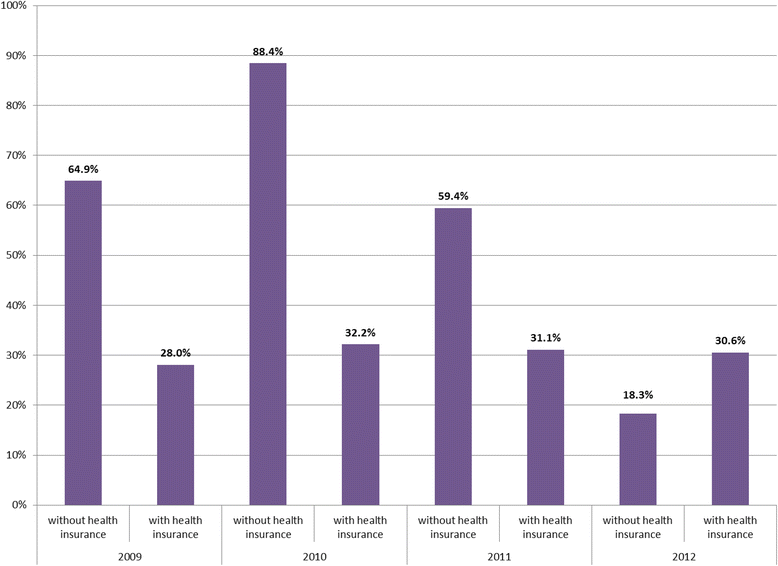
Similar articles
-
Expansion of health insurance in Moldova and associated improvements in access and reductions in direct payments.J Glob Health. 2016 Dec;6(2):020702. doi: 10.7189/jogh.06.020702. J Glob Health. 2016. PMID: 27909581 Free PMC article.
-
Determining household out of pocket payments, incidence of catastrophic expenditures and impoverishment among patients with malaria in Zambia's path towards Universal Health Coverage.PLoS One. 2024 Dec 10;19(12):e0312906. doi: 10.1371/journal.pone.0312906. eCollection 2024. PLoS One. 2024. PMID: 39656710 Free PMC article.
-
Catastrophic healthcare expenditure and impoverishment in tropical deltas: evidence from the Mekong Delta region.Int J Equity Health. 2018 Apr 27;17(1):53. doi: 10.1186/s12939-018-0757-5. Int J Equity Health. 2018. PMID: 29703209 Free PMC article.
-
Economic Burden of Chronic Ill Health and Injuries for Households in Low- and Middle-Income Countries.In: Jamison DT, Gelband H, Horton S, Jha P, Laxminarayan R, Mock CN, Nugent R, editors. Disease Control Priorities: Improving Health and Reducing Poverty. 3rd edition. Washington (DC): The International Bank for Reconstruction and Development / The World Bank; 2017 Nov 27. Chapter 6. In: Jamison DT, Gelband H, Horton S, Jha P, Laxminarayan R, Mock CN, Nugent R, editors. Disease Control Priorities: Improving Health and Reducing Poverty. 3rd edition. Washington (DC): The International Bank for Reconstruction and Development / The World Bank; 2017 Nov 27. Chapter 6. PMID: 30212160 Free Books & Documents. Review.
-
Utilisation, out-of-pocket payments and access before and after COVID-19: Thailand's Universal Health Coverage Scheme.BMJ Glob Health. 2024 May 13;9(5):e015179. doi: 10.1136/bmjgh-2024-015179. BMJ Glob Health. 2024. PMID: 38740495 Free PMC article. Review.
Cited by
-
The disease of corruption: views on how to fight corruption to advance 21st century global health goals.BMC Med. 2016 Sep 29;14(1):149. doi: 10.1186/s12916-016-0696-1. BMC Med. 2016. PMID: 27680102 Free PMC article.
-
Funding paediatric surgery procedures in sub-Saharan Africa.Malawi Med J. 2019 Sep;31(3):233-240. doi: 10.4314/mmj.v31i3.13. Malawi Med J. 2019. PMID: 31839896 Free PMC article.
-
Access to care for childhood cancers in India: perspectives of health care providers and the implications for universal health coverage.BMC Public Health. 2020 Nov 3;20(1):1641. doi: 10.1186/s12889-020-09758-3. BMC Public Health. 2020. PMID: 33143668 Free PMC article.
-
Expansion of health insurance in Moldova and associated improvements in access and reductions in direct payments.J Glob Health. 2016 Dec;6(2):020702. doi: 10.7189/jogh.06.020702. J Glob Health. 2016. PMID: 27909581 Free PMC article.
-
Evidence-based policy making for health promotion to reduce the burden of non-communicable diseases in Moldova.BMC Proc. 2020 Mar 6;14(Suppl 1):1. doi: 10.1186/s12919-020-0183-8. eCollection 2020. BMC Proc. 2020. PMID: 32165921 Free PMC article.
References
Publication types
MeSH terms
Grants and funding
LinkOut - more resources
Full Text Sources
Other Literature Sources

